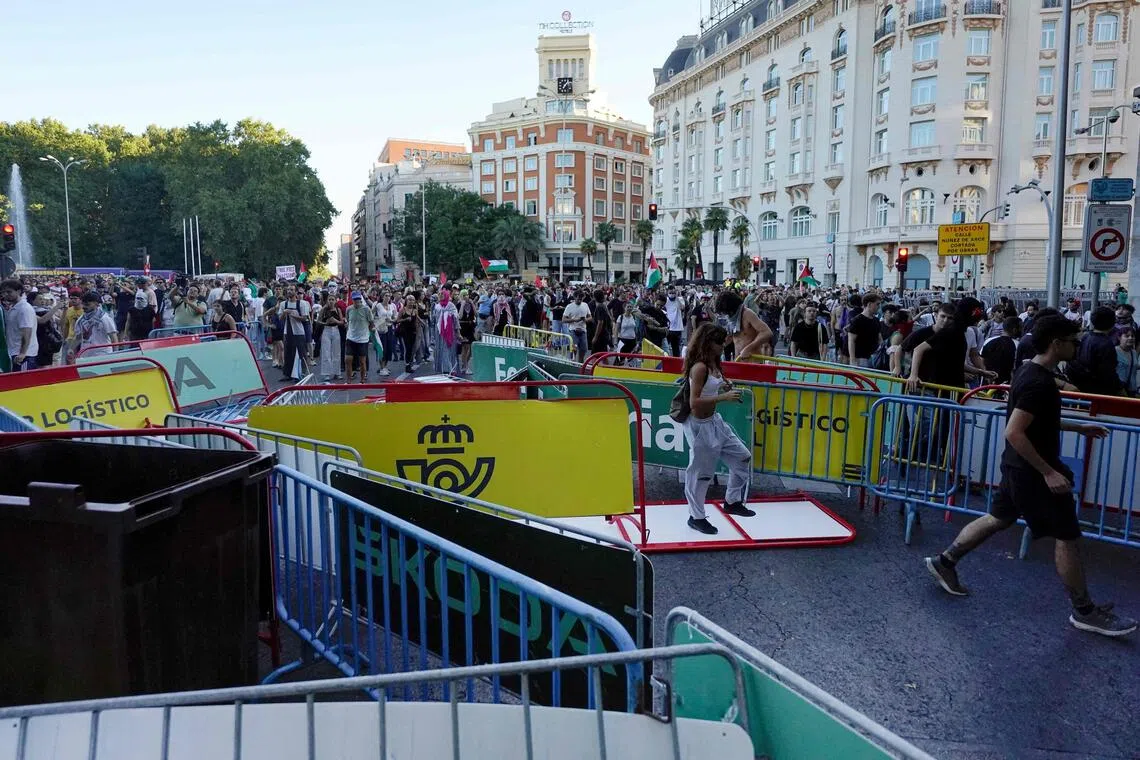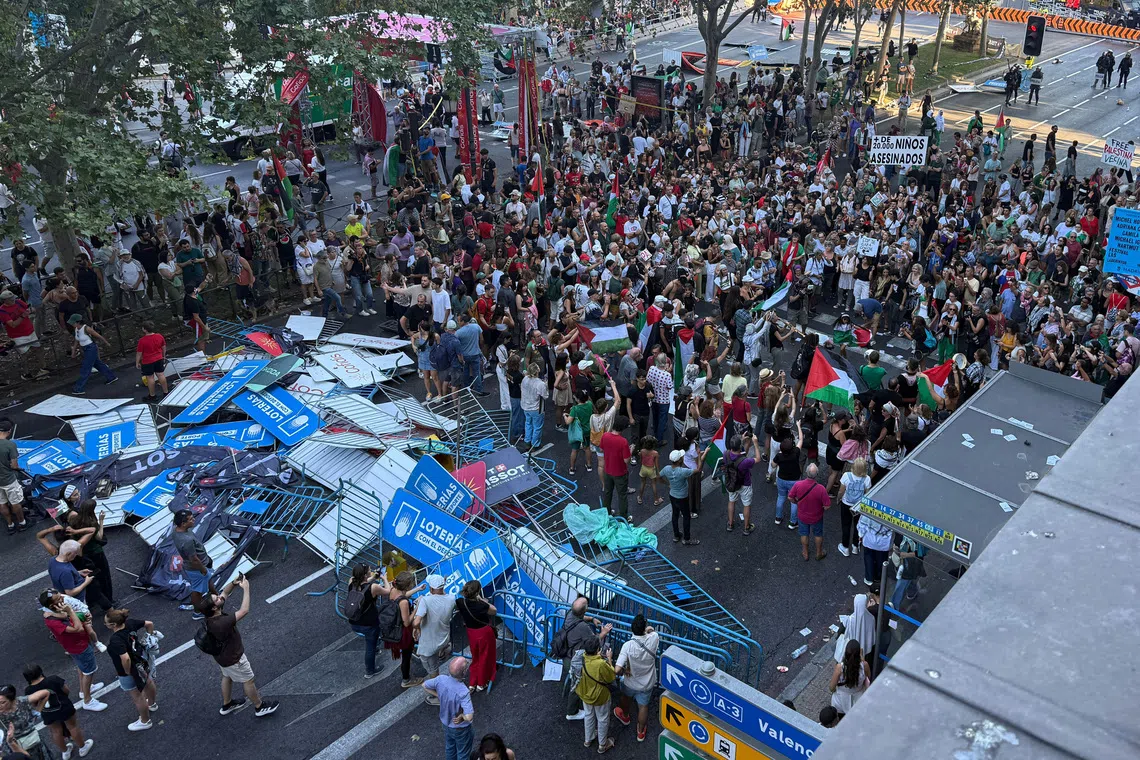Cycling fears spread of race-halting protests after Vuelta a Espana chaos
Sign up now: Get the biggest sports news in your inbox

Pro-Palestinians protestors pull barriers and invade the street during the 21st and last stage of the Vuelta a Espana 2025.
PHOTO: AFP
PARIS – The cycling world was licking its wounds on Sept 15 and wondering “where next?” after a chaotic final day of the Vuelta a Espana which saw the concluding stage called off 50 kilometres from the capital and the winner crowned in a hotel carpark.
The three-week stage race, one of cycling’s three premier Grand Tours, faced multiple disruptions from pro-Palestinian protesters who were motivated by the participation of the Israel-Premier Tech team.
A government spokesperson told AFP that 100,000 people had taken part in the final-stage protests, which followed other pro-Palestinian protests during the race.
The stage was stopped early, and winner Jonas Vingegaard had to make do with an improvised podium.
The activists exposed how vulnerable cycling races are to disruption, as the International Cycling Union (UCI) and race organisers discovered, given that these events cover vast distances on public roads with unrestricted spectator access.
Some fear for future races, notably the 2026 Tour de France, which begins with three stages on Spanish soil, starting in Barcelona.
“Let’s hope that the conflict in Gaza is resolved by the time the Tour de France comes around,” said Vuelta director Javier Guillen on Sept 15.
It is not the first race targeted in 2025.
In May, pro-Palestinian protesters stretched a rope across the road shortly before the finish of the 6th stage of the Giro d’Italia in Naples.
In July, a man wearing a T-shirt reading “Israel out of the Tour” disrupted the finish of the 11th stage of the Tour de France in Toulouse.
But these were isolated incidents, nowhere near the mass demonstrations in Spain, a country where the Palestinian cause is popular.
Spanish Prime Minister Pedro Sanchez, who has talked of “the genocide in Gaza”, even expressed “deep admiration” for the protesters and called for a sporting ban on Israel, a position which drew criticism from the UCI on Sept 15, who said it “calls into question Spain’s ability to host major international sporting events”.
There are fears within the peloton, though, that La Vuelta has set a precedent.
“It’s clear for everyone that a cycling race can be used as an effective stage for protests and next time it will only get worse, because someone allowed it to happen and looked the other way,” wrote experienced Polish rider Michal Kwiatkowski on social media on the evening of Sept 14.
“It’s very bad for cycling that the protesters managed to get what they wanted. We cannot pretend that nothing happened.”

About100,000 people had taken part in the final-stage protests, which followed other pro-Palestinian protests during the race.
PHOTO: REUTERS
The Tour de France, the highest profile race in the world, is an obvious target when it takes place in July 2026, but the Israel-Premier Tech team, 13th in the UCI rankings, is automatically invited to all the most prestigious races on the calendar.
It dropped the word “Israel” from its shirts during La Vuelta for several stages but categorically refused to throw in the towel.
Several riders on other squads called for the withdrawal of the team, which was created by Israeli-Canadian billionaire Sylvan Adams, who likes to describe himself as an ambassador for Israel.
The race director also suggested that such a withdrawal would help calm the situation, while adding it was a decision for the UCI.
“We alerted the UCI to the situation. They took a position through a statement to keep Israel PT in the race,” Guillen said on Sept 15.
In its statement, the UCI expressed its “total disapproval of and deep concern” about the events that marked this year’s Vuelta, calling them a “serious violation of the Olympic Charter and the fundamental principles of sport”.
The war in Gaza was sparked by Hamas’ Oct 7, 2023 attack on Israel, which resulted in the deaths of 1,219 people, most of them civilians, according to an AFP tally of official figures.
Israel’s retaliatory campaign in Gaza has killed at least 64,905 people, also mostly civilians, according to figures from the health ministry that the United Nations considers reliable. AFP


